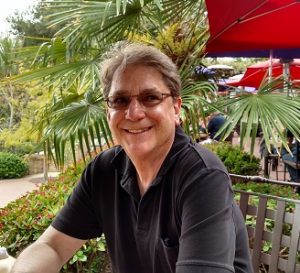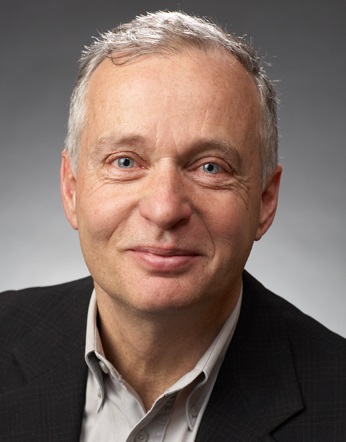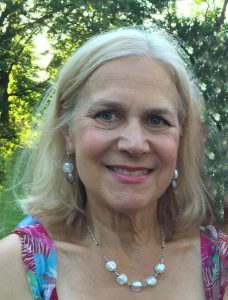This is the tenth in the series of short statements from candidates in the forthcoming CODATA Elections. Paul Uhlir is a new candidate for the CODATA Executive Committee as an Ordinary Member. He was nominated by the USA CODATA National Committee.
 If elected as Ordinary Member of the CODATA Executive Committee, 2016-2018, I expect to share my expertise and experience, outlined below, in the three CODATA Strategic Plan areas. I also want to focus on enlarging the national and institutional memberships to make CODATA more fiscally sustainable using my extensive international contacts, and to help develop a strategy for strengthening the work on the CODATA National Committees.
If elected as Ordinary Member of the CODATA Executive Committee, 2016-2018, I expect to share my expertise and experience, outlined below, in the three CODATA Strategic Plan areas. I also want to focus on enlarging the national and institutional memberships to make CODATA more fiscally sustainable using my extensive international contacts, and to help develop a strategy for strengthening the work on the CODATA National Committees.
I have played an active role in CODATA since 1992, when I was appointed as Director of the U.S. National Committee for CODATA at the National Academy of Sciences in Washington, DC. Other CODATA functions over the last 25 years have included the following:
- Co-chair, CODATA Task Group on Preservation and Access to S&T Data in Developing Countries, 2001 to the present.
- Co-Founder, Global Information Commons for Science Initiative, 2002-2008.
- Director, CODATA-ICSTI Task Group on Data Citation for Standards and Practices, 2010-2015.
- Consultant, CODATA Task Group on Advancing Informatics for Microbiology, 2010-2014.
- Co-chair, RDA-CODATA Interest Group on Legal Interoperability of Research Data, 2013 to the present.
- Co-Chair, Group on Earth Observations’ Data Sharing Working Group (representing CODATA), 2006 to the present.
- Member, Scientific Committee for the International CODATA Conference, 1992-2014.
- CODATA Consultant for the 3rd-Year Review of GBIF, 2003-2004.
- CODATA Consultant to the Group on Earth Observations report on The Value of Data Sharing, 2015.
- CODATA Consultant to the Organisation for Economic Co-operation and Development for a report on Sustainable Business Models for Data Repositories, 2016-2017.
I am currently a Scholar of the National Academy of Sciences and a consultant on data management and policy. Before that, I worked at the NAS from 1985 to 2015 in various senior positions, most recently as Director of the Board on Research Data and Information, which also represented the U.S. CODATA. Prior to the NAS, I was a foreign relations officer and a member of the general counsel’s office at the National Environmental Satellite, Data, and Information Service in the Department of Commerce. I have university degrees in world history, foreign relations, and law. The full background information about my many other research data activities and accomplishments can be found on my website at: http://www.paulfuhlir.com. More specifically, I have extensive experience in all 3 strategic areas of CODATA:
- Promoting data principles, policies and practice. I have chaired or been involved in forming data policies and principles in many of the major international organizations, including UNESCO, the World Summit on the Information Society (WSIS), the Organisation for Economic Co-operation and Development (OECD), the International Council for Science (ICSU), the Group on Earth Observations (GEO), the Global Biodiversity Information Facility (GBIF), Science International, the European Commission (EC) and numerous EC-funded research data projects, the Research Data Alliance (RDA), and CODATA itself. I have similarly been an advisor on research data issues to many government agencies or ministries, including in Chile, Peru, Canada, China, Japan, South Africa, Uganda, several countries in the EU, and most of the agencies and departments in the United States. I also have served on the authoring committees that wrote: the Salvador Declaration on Open Access (2005), the UN World Summit on the Information Society Declaration of Principles (2005), the OECD Principles and Guidelines for Access to Research Data from Public Funding (2007), the OECD Recommendation on Public Sector Information (2008), the Joint Declaration on Data Citation Principles (2014), the CODATA Nairobi Data Sharing Principles (2014), the Science International Accord on Open Data in a Big Data World (2015), and the RDA-CODATA Principles and Implementation Guidelines for the Legal Interoperability of Research Data (currently). Finally, as a lawyer and science policy analyst, I have brought substantial social science expertise to the table in all these activities.
- Advancing the frontiers of data science. I have been the author, editor, or director of 24 National Research Council reports and of 3 books, most on various topics of data science and its management and policy, as well as authoring over 70 technical articles in that general area (see my full list of publications on my website, with the link above. I was awarded the National Research Council’s Special Achievement Award in 1997 and the CODATA Prize for Outstanding Achievement in the World of Scientific and Technical Data in 2010, and was elected as Fellow of the American Association for the Advancement of Science for my work in scientific information in 2011.
- Data strategies for international science. This CODATA strategic initiative is mostly focused on education and training in the developing world, where I have co-organized over 25 workshops on this topic in South America, Central America and Caribbean, Africa, and Asia from 2002-present. I have served as the director of the InterAcademy Panel on International Issues Program in Digital Knowledge Resources and Infrastructure in Developing Countries (2005-2012), and lectured in training programs in Mongolia (2010), China (2012, 2013), and Kenya (2014). See also the information under #1, above, and on my website.










 and has been involved with
and has been involved with 